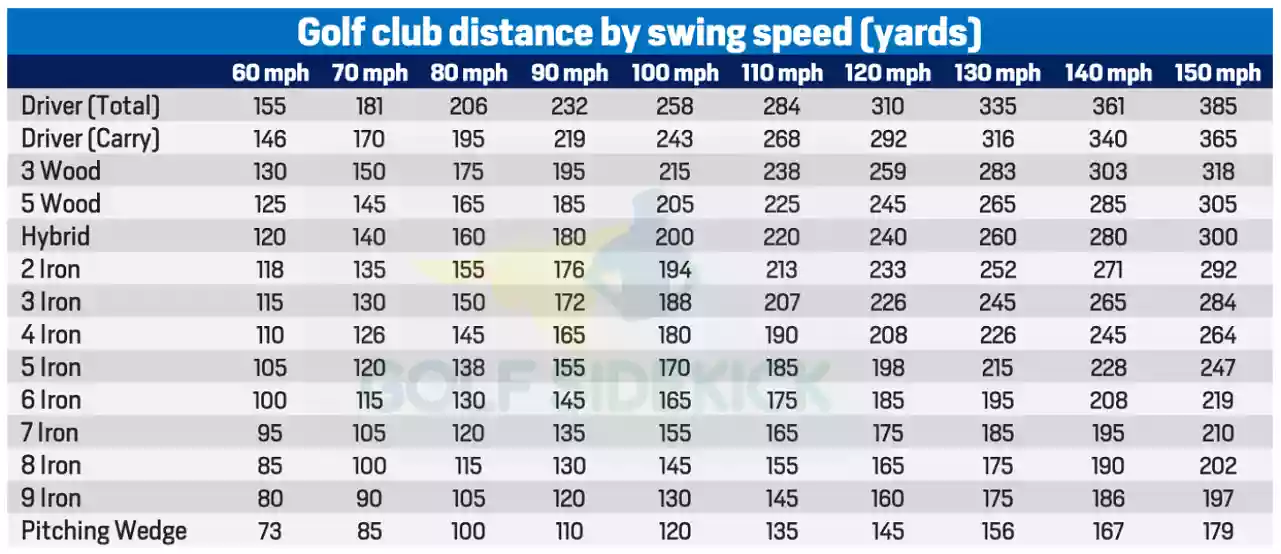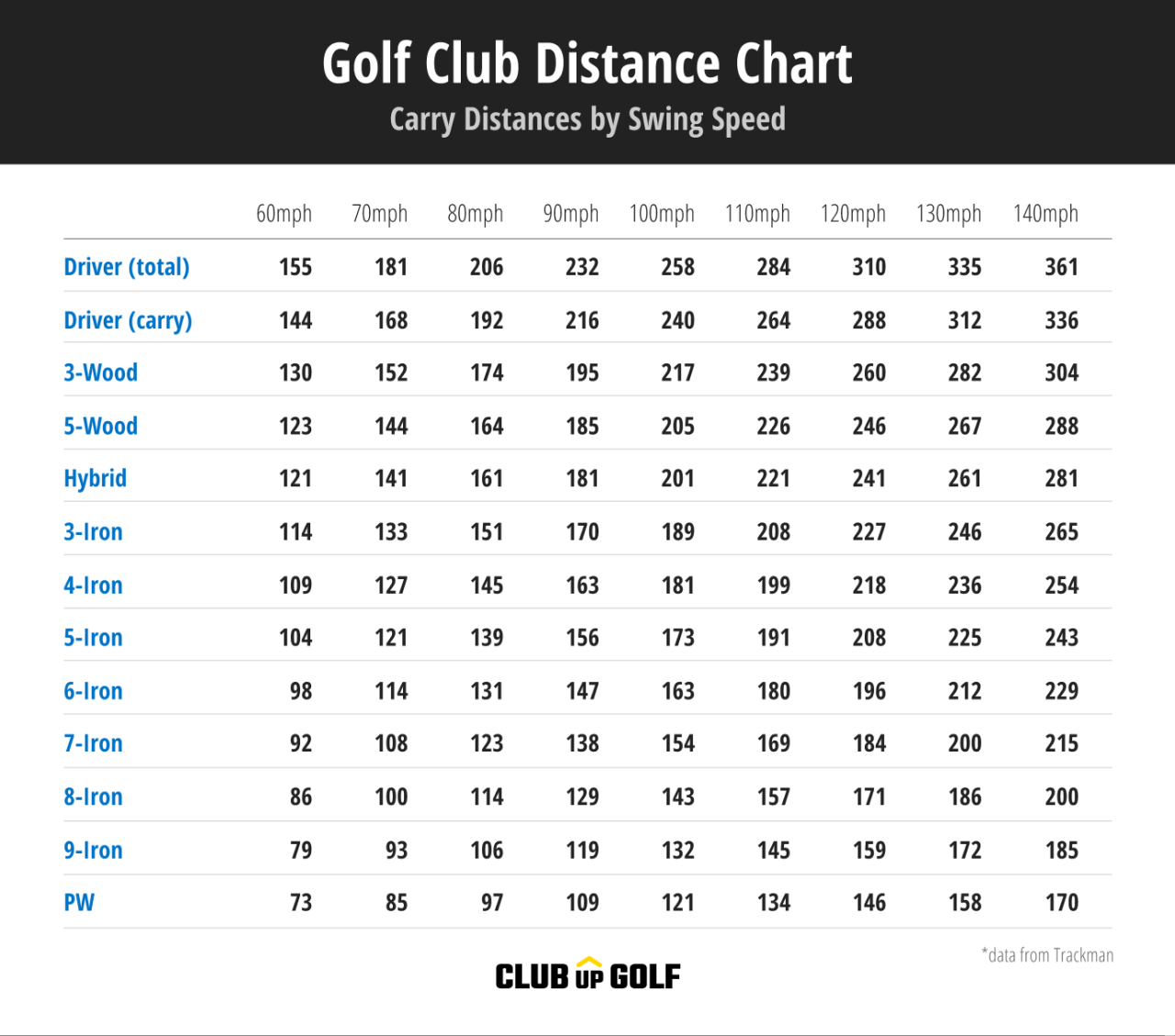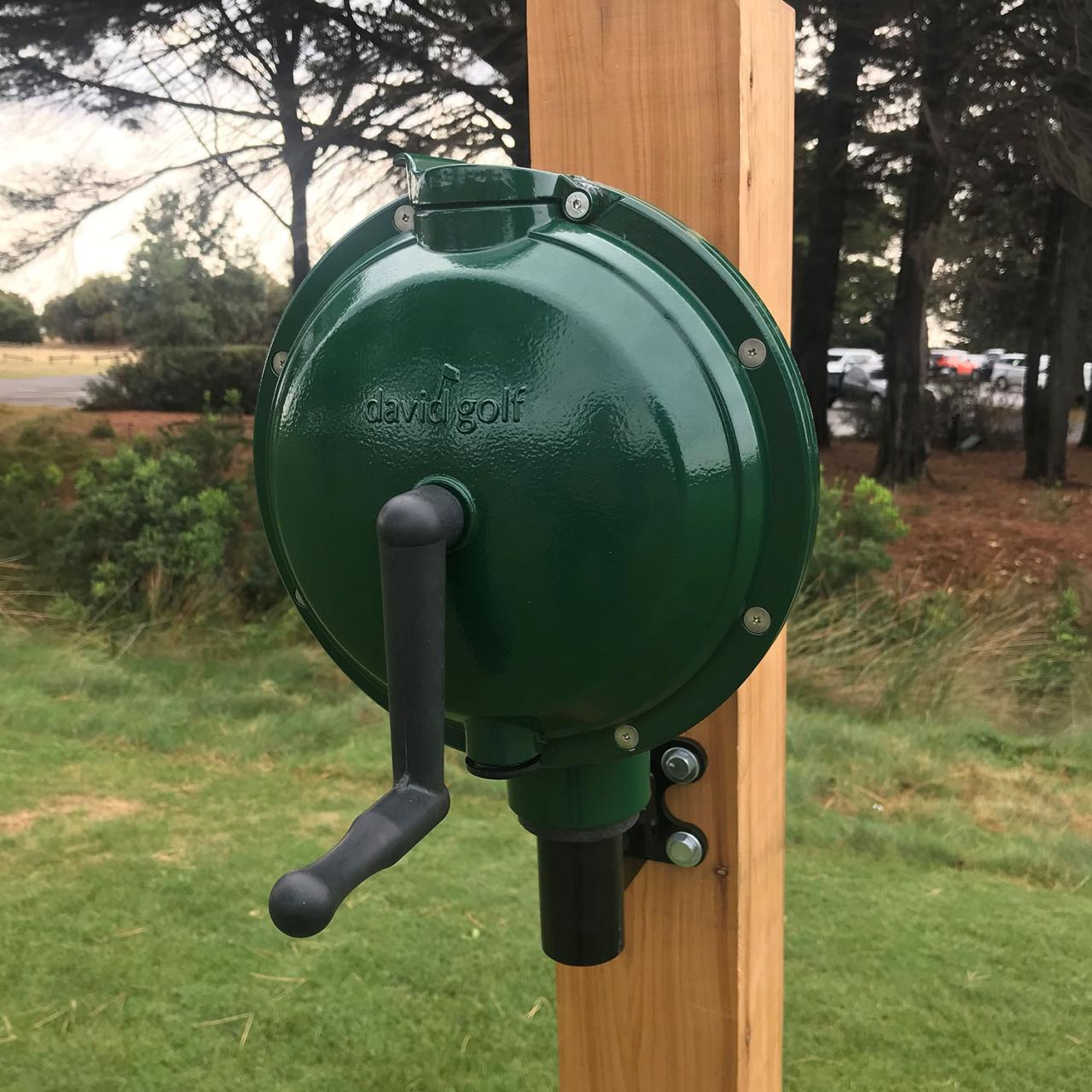Golf swing speed calculator is a powerful tool that can help golfers of all levels improve their game. By measuring and analyzing swing speed, golfers can gain valuable insights into their technique, identify areas for improvement, and ultimately achieve greater distance and accuracy.
Swing speed is a critical factor in golf, as it directly influences the distance a ball travels. A faster swing generally results in a longer shot, but it’s not just about brute force. Factors such as club selection, technique, and even the golfer’s physical strength all play a role in determining swing speed.
Understanding these factors is key to maximizing your potential on the course.
Understanding Golf Swing Speed: Golf Swing Speed Calculator

Golf swing speed is a crucial factor in determining how far you can hit the ball. The faster your swing, the more force you transfer to the ball, resulting in a longer distance. However, it’s not just about brute strength.
Technique plays a significant role in maximizing swing speed and achieving consistent distance.
Factors Influencing Swing Speed
Swing speed is influenced by a combination of factors, including strength, technique, and club selection.
- Strength: Stronger muscles, particularly in the core, legs, and arms, allow you to generate more power in your swing.
- Technique: Proper technique ensures you efficiently transfer energy from your lower body to your upper body and ultimately to the clubhead. This involves a coordinated movement from your feet to your hips, then to your shoulders, and finally to your arms and hands.
- Club Selection: Choosing the right club for the shot you are attempting influences swing speed. Longer clubs, such as drivers, are designed to be swung faster, while shorter clubs, such as wedges, are swung slower.
Swing Speed and Shot Trajectory
Different swing speeds result in varying shot trajectories and distances.
- Slower Swing Speeds: A slower swing speed typically results in a lower launch angle and shorter distance.
- Faster Swing Speeds: A faster swing speed produces a higher launch angle and greater distance. However, it also increases the risk of hitting the ball off-center, which can lead to inconsistent results.
Examples of Swing Speed and Distance
Here are some examples of how swing speed impacts shot distance:
- Amateur Golfer: An amateur golfer with a swing speed of 80 miles per hour (mph) might average 200 yards with a driver.
- Professional Golfer: A professional golfer with a swing speed of 110 mph might average 300 yards with a driver.
Types of Golf Swing Speed Calculators
Golf swing speed calculators are tools that help golfers measure and track their swing speed. This information can be invaluable for improving technique, selecting the right equipment, and understanding performance. There are several different types of golf swing speed calculators available, each with its own advantages and disadvantages.
Online Calculators
Online golf swing speed calculators are web-based tools that allow users to input their swing speed data and receive an estimated club head speed. These calculators typically use formulas based on various factors, including the user’s age, gender, and swing type.
Advantages
- Free and readily available: Many online calculators are free to use, making them accessible to a wide range of golfers.
- Easy to use: Online calculators typically have a simple interface that is easy to navigate.
- Quick results: Online calculators provide instant results, allowing users to get a quick estimate of their swing speed.
Disadvantages
- Limited accuracy: Online calculators rely on user input and formulas, which may not be completely accurate. They do not take into account all the factors that influence swing speed, such as swing path, club type, and ball position.
- Lack of personalization: Online calculators often provide generic results, not tailored to individual needs or swing characteristics.
Examples
- Golf Swing Speed Calculator: This calculator uses a formula based on the user’s age, gender, and swing type to estimate their swing speed. It also provides tips on how to improve swing speed.
- Golf Swing Speed Chart: This chart provides a visual representation of different swing speed ranges and their corresponding club head speeds. It can be helpful for golfers to see where their swing speed falls within the typical range.
App-Based Calculators, Golf swing speed calculator
App-based golf swing speed calculators are mobile applications that allow users to measure their swing speed using their smartphone or tablet. These apps typically use sensors or cameras to track the swing and provide real-time feedback.
Advantages
- Portability: App-based calculators can be used anywhere, making them convenient for practice sessions and on the golf course.
- Advanced features: Many app-based calculators offer advanced features, such as swing analysis, video recording, and data tracking.
- Increased accuracy: App-based calculators that use sensors or cameras can provide more accurate measurements of swing speed than online calculators.
Disadvantages
Examples
- SwingU: This app uses a smartphone camera to track the swing and provide swing speed data, as well as other performance metrics. It also offers features like GPS mapping, scorekeeping, and course information.
- Arccos Caddie: This app uses sensors placed on golf clubs to track swing speed, distance, and other data. It provides insights into performance and can help golfers improve their game.
Physical Devices
Physical golf swing speed calculators are devices that are attached to the club or the golfer’s hand to measure swing speed. These devices typically use sensors or accelerometers to track the swing and provide real-time feedback.
Advantages
- High accuracy: Physical devices are generally considered to be the most accurate method for measuring swing speed.
- Real-time feedback: Physical devices provide immediate feedback on swing speed, allowing golfers to adjust their swing in real time.
- Durability: Physical devices are designed to withstand the rigors of golf practice and play.
Disadvantages
Examples
- Swing Caddie SC200: This device attaches to the club shaft and uses a sensor to measure swing speed, club head speed, and ball speed. It also provides data on launch angle, spin rate, and carry distance.
- Bushnell Launch Pro: This device attaches to the golfer’s hand and uses an accelerometer to measure swing speed, club head speed, and ball speed. It also provides data on swing path, face angle, and ball flight.
How Golf Swing Speed Calculators Work
Golf swing speed calculators leverage the principles of physics to measure the velocity of a golf clubhead during a swing. By capturing and analyzing swing data, these devices provide valuable insights into a golfer’s swing mechanics and potential for improvement.
Scientific Principles Behind Swing Speed Measurement
The fundamental principle behind swing speed measurement is the relationship between velocity, distance, and time. Swing speed calculators use sensors to measure the distance the clubhead travels during a specific time interval, ultimately calculating the velocity. This measurement is typically expressed in miles per hour (mph) or kilometers per hour (km/h).
Methods Used by Calculators to Capture and Analyze Swing Data
Swing speed calculators employ a variety of methods to capture and analyze swing data, including:* Doppler Radar:This technology uses the Doppler effect to measure the change in frequency of radio waves emitted by the clubhead as it moves. By analyzing the frequency shift, the calculator determines the clubhead’s velocity.
Accelerometers
These sensors measure the acceleration of the clubhead during the swing. By integrating the acceleration data over time, the calculator can calculate the clubhead’s velocity.
Gyroscopes
These sensors measure the angular velocity of the clubhead during the swing. By analyzing the angular velocity, the calculator can determine the clubhead’s linear velocity.
Key Components of a Typical Swing Speed Calculator
A typical swing speed calculator consists of the following key components:* Sensors:These are the devices that capture the swing data. They can be integrated into the club grip, attached to the club shaft, or even worn on the golfer’s wrist.
Processing Unit
This component analyzes the data collected by the sensors and calculates the swing speed.
Display
This component presents the swing speed data to the golfer, typically in a digital format.
Software
This component provides additional features such as swing analysis, data storage, and connectivity to other devices.
The accuracy and reliability of swing speed calculators depend on the quality of the sensors, the sophistication of the algorithms used to analyze the data, and the proper calibration of the device.
Using a Golf Swing Speed Calculator

Golf swing speed calculators are tools that measure the speed of your swing, providing valuable insights into your performance. They are user-friendly and can be utilized by golfers of all skill levels to enhance their game.
Steps for Using a Golf Swing Speed Calculator
The process of using a golf swing speed calculator is straightforward and typically involves these steps:
- Choose a Calculator:Select a swing speed calculator that aligns with your needs and preferences. Several types are available, including handheld devices, smartphone apps, and radar-based systems.
- Calibration:Most calculators require calibration before use. This involves setting the device to your specific club length and swing type. The calibration process ensures accurate measurements.
- Swing Preparation:Stand in a safe and comfortable position, similar to your regular golf stance. Hold the club firmly and ensure a proper grip.
- Swing Execution:Swing the club through your normal swing motion, aiming at a target. Avoid any unusual movements or sudden changes in your swing path.
- Data Analysis:The calculator will display your swing speed in miles per hour (mph) or kilometers per hour (km/h). You can review the data to identify areas for improvement and track your progress over time.
Calibrating and Interpreting Results
Calibration is crucial for obtaining accurate swing speed measurements. Most calculators have a calibration mode that guides you through the process. Typically, you’ll need to swing the club at a specific speed or angle, allowing the device to adjust its readings.Interpreting the results involves understanding the context of your swing speed.
Factors such as club type, swing plane, and physical fitness can influence the speed. Comparing your results to average swing speeds for your skill level and club type can provide valuable insights into your performance.
Tips for Optimizing Swing Speed Measurements
Here are some tips for maximizing the accuracy and usefulness of your swing speed measurements:
- Use a Consistent Swing:Strive for a smooth and consistent swing motion each time you use the calculator. Avoid any jerky movements or changes in your swing path.
- Calibrate Regularly:Periodically recalibrate the calculator to ensure accurate readings, especially if you change clubs or experience significant changes in your swing.
- Track Your Progress:Record your swing speed measurements over time to track your progress and identify areas for improvement. Use this data to set goals and monitor your development.
- Consider Environmental Factors:Swing speed can be influenced by factors such as temperature, wind conditions, and altitude. Take these factors into account when interpreting your results.
Benefits of Using a Golf Swing Speed Calculator

Golf swing speed calculators provide valuable insights into your swing mechanics, allowing you to identify areas for improvement and optimize your performance. They can help you understand the relationship between swing speed and distance, providing data that can be used to make informed decisions about your equipment and training.
Swing Speed Data for Personalized Training
Swing speed data offers a quantifiable measure of your swing, enabling you to track progress and tailor your training regimen. This data can be used to:
- Set Realistic Goals:Knowing your current swing speed allows you to set achievable goals for improvement. This data can guide you towards targeted training programs designed to increase your swing speed gradually.
- Identify Swing Mechanics Issues:Comparing your swing speed to benchmarks for your skill level can reveal potential issues in your swing. For example, a slower swing speed than expected could indicate a problem with your backswing, downswing, or clubhead speed.
- Track Progress Over Time:Regularly using a swing speed calculator allows you to track your progress over time. This data can help you understand the effectiveness of your training and make adjustments as needed.
Optimizing Equipment Choices
Swing speed data plays a crucial role in selecting the right golf clubs for your game. It allows you to:
- Determine Optimal Clubhead Speed:Understanding your swing speed helps you determine the optimal clubhead speed for different clubs. This ensures that you are using clubs that are well-suited for your swing and can generate maximum distance.
- Select the Right Shaft Flex:Shaft flex is directly related to swing speed. A swing speed calculator can help you choose the appropriate shaft flex for your clubs, ensuring optimal launch angle and distance.
- Optimize Club Selection:Knowing your swing speed allows you to select the right club for each shot. This can improve accuracy and distance control, leading to better scores.
Limitations of Golf Swing Speed Calculators
While golf swing speed calculators offer valuable insights into your swing mechanics, it’s essential to recognize their limitations. They provide a snapshot of your swing speed, but they don’t tell the whole story.
Understanding the Context of Swing Speed Data
Swing speed is just one factor influencing your golf performance. Other crucial aspects include clubhead path, launch angle, spin rate, and ball flight. While a fast swing speed can lead to longer drives, it doesn’t guarantee accuracy or control. A player with a slower swing speed who consistently hits the sweet spot with a controlled trajectory can achieve better results than a player with a faster swing speed who lacks accuracy.
Factors Affecting Swing Speed Measurement Accuracy
- Device Type and Accuracy: Swing speed calculators vary in accuracy. Some devices, like radar guns, are more precise than others, like smartphone apps. The accuracy of the measurement can be affected by environmental factors, such as wind and temperature.
- Swing Technique: The way you swing the club can influence the measured swing speed. For instance, a swing with a high backswing or a late downswing might result in a faster swing speed but could lead to inconsistent ball strikes. A swing with a slower tempo but a solid impact can produce better results.
- Club Choice: The type of club used for the swing speed measurement affects the result. A driver swing speed will be faster than a wedge swing speed. Using different clubs can result in different swing speeds, even if the swing itself is consistent.
Examples of Swing Speed Misinterpretation
- Overemphasis on Speed: Focusing solely on swing speed can lead to neglecting other essential aspects of the swing. A player might prioritize increasing swing speed, leading to a loss of control and accuracy. A player with a slower swing speed but a consistent swing path and impact might achieve better results.
- Ignoring Swing Path and Impact: A player with a fast swing speed but an inconsistent swing path and poor impact might not see the expected results. A player with a slower swing speed but a solid swing path and impact can hit the ball farther and more accurately.
Alternatives to Golf Swing Speed Calculators
While golf swing speed calculators offer a convenient and accessible method for gauging swing speed, they are not the only means available. Several alternative approaches provide valuable insights into swing mechanics and performance, offering a more comprehensive understanding of swing speed and its impact on the game.
Video Analysis
Video analysis provides a detailed visual representation of a golfer’s swing, allowing for a meticulous examination of swing mechanics and speed. By capturing the swing from multiple angles, video analysis tools can identify specific areas for improvement and provide insights into the nuances of swing speed.
- Advantages:
- Provides a visual representation of the swing, enabling a detailed analysis of swing mechanics and speed.
- Offers insights into the nuances of swing speed, such as swing path, clubhead speed, and ball speed.
- Can be used to track progress over time and identify areas for improvement.
- Disadvantages:
- Requires specialized equipment and software for analysis.
- May require professional expertise for accurate interpretation of data.
- Can be time-consuming to analyze and interpret the results.
Professional Coaching
Professional golf coaches provide expert guidance and feedback on swing mechanics, including swing speed. Through observation, analysis, and personalized instruction, coaches can identify areas for improvement and develop strategies to enhance swing speed.
- Advantages:
- Provides personalized instruction and feedback based on individual needs and goals.
- Offers expert guidance on swing mechanics and techniques to optimize swing speed.
- Can help identify and address underlying issues affecting swing speed.
- Disadvantages:
- Can be expensive compared to other methods.
- Requires commitment and dedication to regular coaching sessions.
- May not be readily available in all locations.
Questions and Answers
Are golf swing speed calculators accurate?
The accuracy of golf swing speed calculators varies depending on the type and quality of the device. High-end devices tend to be more precise, but even basic calculators can provide useful insights. It’s important to calibrate the device properly and understand the limitations of the technology.
Can I use a golf swing speed calculator at home?
Yes, many golf swing speed calculators are designed for home use. Portable devices and smartphone apps allow you to track your progress without needing to visit a driving range.
What are the best golf swing speed calculators?
There are many great golf swing speed calculators available, but some popular options include the Swing Catalyst, the Zepp Golf 2, and the Swingbyte. These devices offer a range of features, from basic swing speed measurement to detailed swing analysis.

